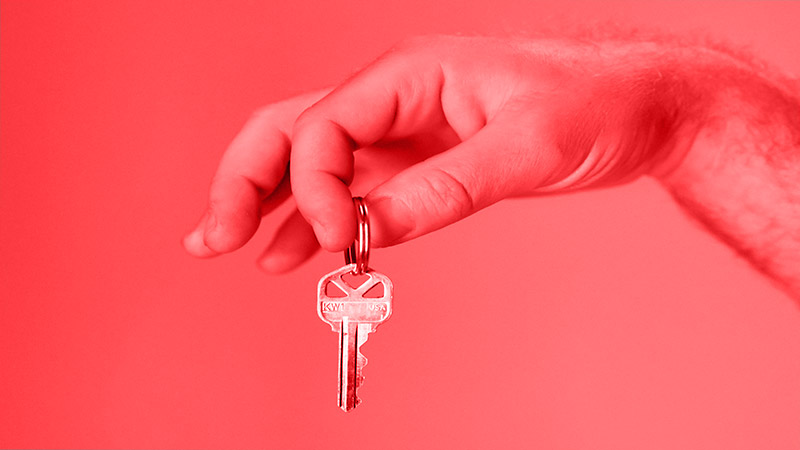67,500 mortgages were approved in November 2024 in the United Kingdom, many of which came with the dreaded request for more documents.
Buying a home is one of the most exciting milestones in life – until the mortgage process feels like an endless paper chase that is. If your mortgage underwriter keeps asking for more documents, you might feel like you’re stuck in limbo with no clear path out, but it’s not necessarily bad news when this happens.
The paperwork and red tape involved in the mortgage process are all part of the journey to homeownership – a rite of passage so to speak. Of course, your underwriter is only asking for more documents to do their job better, as they act as detailed fact checkers throughout the process.
In this article, we’ll break down what it means when a mortgage underwriter keeps asking for more documents, why it happens, and what you can do to ensure a smoother, faster experience when navigating UK mortgage requirements.
What Does a Mortgage Underwriter Do?
To understand the process, first, you must understand the role of a mortgage underwriter. In the UK, mortgage underwriters are a vital part of the home-buying process.
Their primary job is to assess your financial situation and determine whether lending you money is a responsible decision.
Underwriters focus on three main pillars:
- Your Income: They need to verify that you can afford your monthly payments.
- Your Creditworthiness: Your credit report gives them insight into your history with borrowing and repayment.
- Your Financial Behaviour: They’ll analyse bank statements and spending patterns to ensure there are no surprises or risks.
Their role isn’t to catch you out but to gather enough evidence to satisfy the lender and comply with strict mortgage lending regulations. The ultimate goal is to protect you from overborrowing and the lender from taking on an unnecessary risk.
Why Would Mortgage Underwriters Keep Asking for More Documents?
It’s easy to assume underwriters are being nitpicky or that they overlooked something when there’s a request for more documents.
The reality is more nuanced. Here are a few reasons why you might receive additional document requests:
1. Clarification of Your Income
Perhaps your pay slip shows a recent bonus or an irregular overtime payment. While it’s great to have these, underwriters need to know if they’re consistent or one-offs before calculating affordability.
2. Questions About Bank Statements
If you’ve made large deposits or withdrawals recently, the underwriter may ask for proof of where the money came from. For instance, a gifted deposit from a family member might require a signed declaration from them.
3. Inconsistent or Missing Information
Maybe your employment history shows a gap or your credit file raises a flag about a missed payment from the past. These details don’t automatically disqualify you, but the underwriter will need explanations and supporting documents.
What Are Mortgage Underwriters Really Looking for When They Ask for Additional Documents?
Here’s a bit more insight into what underwriters are trying to identify:
- Affordability of the Mortgage: The underwriter wants to determine if you can afford your expected mortgage payments without stretching your budget too thin or getting yourself into unmanageable debt.
- Proof of Financial Stability: Mortgage underwriters want to know if your income is regular and reliable and if you have secure employment or a sustainable self-employed position. They’ll check your finances to ensure that your income is steady and that you’ve experienced no gaps or issues because of sudden gaps.
- Spending Red Flags: Frequent gambling, large unexplained expenses, or a history of missed payments might indicate financial instability, which will work against your mortgage application.
Why Don’t Mortgage Underwriters Ask for Everything Upfront?
You may find yourself wondering why underwriters don’t simply hand you a laundry list of required documents from the start so that you can get everything to them immediately.
The answer lies in the complexity of personal finances. No two applications are the same, and new questions often arise while the initial paperwork is being reviewed.
Some unique example scenarios that would require further investigation by the mortgage underwriter include (but are not limited to):
- Unverified Transaction: Your bank statement shows a transaction that wasn’t mentioned in your application, prompting further investigation.
- Pay Increase: A recent pay increase might require confirmation from your employer to ensure it’s permanent and not just a one-off.
- Unusual Account Activity: If your bank statement shows a large cash deposit or withdrawal without an accompanying explanation, the underwriter may request documentation to verify its source. A sudden influx of funds might raise questions about whether it’s a gift, loan, or one-time payment.
- Self-Employment Income Fluctuations: If you’re self-employed, your income will likely vary month-to-month. The underwriter might ask for additional tax returns, business accounts, or even a letter from your accountant to confirm the consistency and sustainability of your income over time. A historical view of your earnings will provide more insight into your affordability.
What You Can Do to Streamline the Mortgage Application Process
While you can’t entirely eliminate requests for additional documents from the mortgage underwriter, there are several proactive steps you can take to speed things up and ensure a smoother application process.
1. Get Your Paperwork Organised Early On
Ensure you have all the essentials on hand such as:
- Recent bank statements (typically three to six months).
- Pay slips (covering the same period).
- Proof of deposit (e.g., a savings statement or a gift letter from a family member).
- Employment details, including contracts or self-employment tax returns if applicable.
2. Be 100% Transparent
If you’ve had financial blips in the past, don’t try to hide them. It’s better to disclose these upfront and provide explanations than for the underwriter to uncover them later.
3. Work with a Mortgage Broker
Brokers know what underwriters look for and can help anticipate potential hurdles. They can also provide valuable guidance on gathering the right documentation and presenting your case effectively.
4. Respond Promptly to Requests for Further Documents
Delays often occur because documents are sent piecemeal or not at all. If your underwriter requests more documents or explanations, aim to provide it within 24–48 hours to keep the process moving.
5. Triple-Check for Errors
Ensure the documents you submit are complete, legible, and up to date. A missing page from a bank statement or an outdated document can trigger unnecessary back-and-forth, which results in delays.
Related reading:
- Reasons for remortgaging.
- Remortgaging to release equity.
- Remortgaging to buy another property.
- Remortgaging with bad credit.
- Remortgaging for home improvements.
- I own my house outright can I remortgage?
- Capital raising mortgages.
Understanding the Complexities of the UK Mortgage Process
The UK’s strict lending regulations mean that underwriters must be meticulous and cautious when reviewing each application.
This can be frustrating for buyers, but it’s ultimately in your best interest too. Some of the basics you should know about UK mortgage underwriting:
- Regulation: UK lenders must adhere to Financial Conduct Authority (FCA) rules, ensuring that loans are granted responsibly. This is essentially why further documents may be requested.
- Consumer Protection: Rigorous checks are designed to help prevent borrowers from taking on unmanageable debt.
- Tailored Assessment: Lenders don’t expect perfection, but they need a clear, honest picture of your finances to ensure that you end up with a loan product that’s right for your situation and that you can afford.
What Happens If Your Mortgage Application is Denied?
If your mortgage application is declined due to issues that are uncovered during underwriting, it’s not the end of the road.
Many buyers in the same position have successfully secured mortgage loans after a denial/rejection by:
- Addressing errors on their credit file.
- Increasing their savings for a larger deposit.
- Seeking advice from a specialist broker who works with complex cases.
Final Thoughts
When an underwriter asks for more documents, it’s not a sign that your mortgage application is going to be denied. It’s just part of the process.
By staying organised, transparent, and responsive, you can help ensure a smoother mortgage application process.
Call us today on 01925 906 210 or contact us to speak to one of our friendly advisors.
















